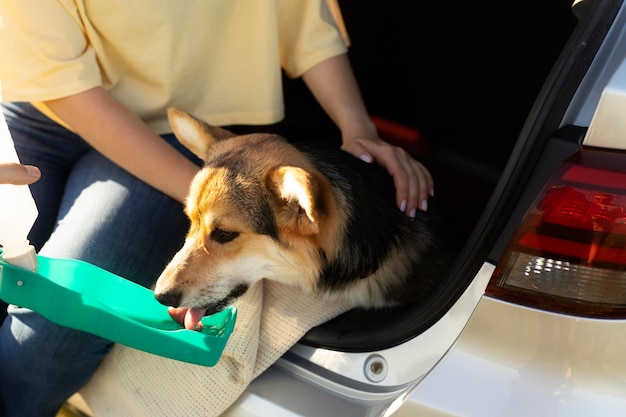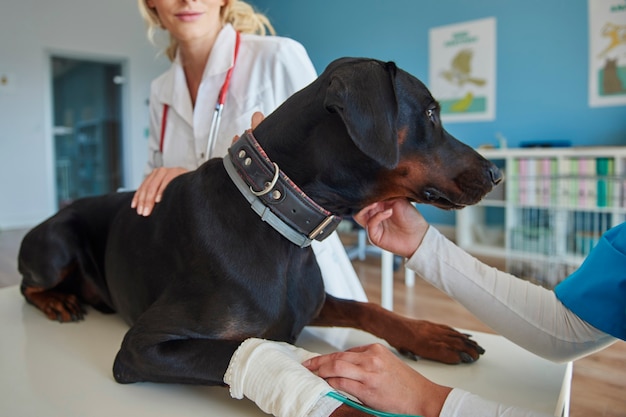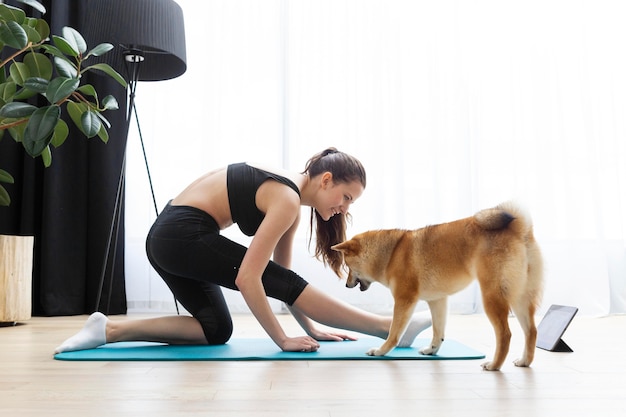Is My Pet in Pain? Signs of Mobility Struggles


Is My Pet in Pain? Signs of Mobility Struggles
When your dog or cat starts moving more slowly or seems less eager to play, it is natural to wonder if pain or discomfort might be holding them back. As pet owners, we know our animals cannot tell us exactly what hurts, so we must rely on subtle clues to detect problems early. At Alpha Animal Rehab & Fitness, located at 975 Bloomfield Ave, Suite 1, West Caldwell, NJ 07006, our team specializes in supporting dogs and cats facing mobility challenges. Whether your companion is recovering from an injury, coping with age-related changes, or struggling with a chronic orthopedic condition, recognizing the signs of pain is the first step to restoring comfort and independence.
This guide will help you understand the most common pet mobility loss signs, what causes them, and how rehabilitation for dogs and cats can make a difference—especially when you seek help early. We will also share how our specialized therapies and local expertise make us a trusted "rehabilitation vet near me" for West Caldwell and surrounding communities. If you are concerned about your pet's movement or quality of life, you are not alone. Read on to learn what to watch for and how to help your pet feel like themselves again.
Recognizing Pet Mobility Loss Signs: When Should You Worry?
Every pet is unique, but changes in movement or behavior often signal that something is amiss. Many pet owners notice a difference during everyday activities: perhaps your dog hesitates at the stairs, or your cat no longer jumps onto their favorite window perch. Key symptoms of mobility issues include reluctance to walk or play, stiffness after resting, changes in posture, and a noticeable limp or uneven gait. You might also observe that your pet struggles to rise, has difficulty with slippery floors, or tires more quickly than usual during walks.
Additionally, some pets show less obvious signs, such as licking or chewing at a specific joint, vocalizing when touched, or withdrawing from family interactions. Cats in particular can be masters at hiding discomfort, so subtle changes in grooming habits, litter box usage, or overall activity levels may be your only clue. Loss of muscle mass, especially around the hindquarters, is another warning sign that often accompanies chronic pain or neurological issues. In some cases, pets develop new behavioral challenges, like irritability or restlessness, which may be linked to discomfort.
Understanding these pet mobility loss signs helps you catch problems before they escalate. If you notice any of these patterns lasting more than a few days or gradually worsening, it is time to consider a professional assessment with a rehabilitation veterinarian near you.
Why Mobility Loss Happens: Underlying Causes in Dogs and Cats
Mobility struggles in pets can arise from a variety of causes, ranging from acute injuries to chronic conditions. Age-related changes are especially common; as dogs and cats get older, their joints may develop osteoarthritis, and their muscles can weaken, reducing overall flexibility and strength. Conditions such as hip dysplasia, intervertebral disc disease (IVDD), and cruciate ligament tears are also frequent culprits, leading to pain and compensatory movement patterns. Pets who have undergone orthopedic surgery or experienced trauma may face temporary or long-term mobility limitations during recovery.
Some breeds are genetically predisposed to joint or spinal issues, while excess body weight increases the strain on joints and worsens inflammation. For cats, obesity is a significant risk factor for both arthritis and decreased activity, making early intervention crucial. Neurological disorders, such as those affecting the spinal cord or nerves, can also cause mobility loss, often presenting as weakness, knuckling, or loss of coordination. In all of these scenarios, untreated pain can lead to further muscle atrophy, decreased confidence, and a downward spiral in your pet's quality of life.
Understanding the root cause is essential for developing an effective plan for rehabilitation for dogs and cats. Specialized veterinary teams like ours use a combination of physical assessments, gait analysis, and advanced therapies to pinpoint the source of your pet's mobility challenges. For example, if your pet is struggling due to arthritis, our arthritis management program provides targeted relief and support tailored to their specific needs.
How Rehabilitation for Dogs and Cats Restores Comfort and Confidence
Rehabilitation for dogs and cats is a highly specialized field that blends veterinary science with hands-on therapy to improve function, reduce pain, and enhance overall wellbeing. At Alpha Animal Rehab & Fitness, our approach begins with a thorough evaluation to understand your pet's unique challenges and goals. Treatment options are always customized, drawing from a range of evidence-based modalities that address both the immediate symptoms and the underlying cause.
Therapies commonly used in our facility include underwater treadmill sessions, which provide low-impact exercise that builds strength while minimizing joint stress. Manual therapy techniques, such as massage and joint mobilization, help relieve muscle tension and improve flexibility. Our laser therapy services are designed to decrease inflammation and promote tissue healing, while therapeutic exercise builds endurance and corrects abnormal gait patterns.
Some pets benefit from advanced tools like carts, harnesses, or braces, which provide support during recovery or long-term management of chronic conditions. Weight management is another critical component, particularly for overweight pets whose extra pounds worsen pain and mobility loss. For cats, specialized cat rehabilitation and physical therapy services focus on gentle exercises and environmental modifications to encourage movement and confidence.
By working closely with a specialist vet near you, such as our dedicated team in West Caldwell, you gain access to the latest techniques in veterinary rehabilitation. Our programs are designed to restore comfort, rebuild muscle, and empower pets to enjoy their favorite activities again.
What to Expect During a Rehabilitation Visit
When you schedule a rehabilitation consultation, your pet will undergo a detailed assessment that may include observation of walking and movement, palpation of joints and muscles, and review of any prior diagnostic imaging or medical history. From there, our veterinary professionals create a personalized plan that may involve a combination of in-clinic therapies, at-home exercises, and lifestyle adjustments. Progress is monitored closely, with regular check-ins to adapt the plan as your pet improves.
Supporting Your Pet at Home: Prevention and Daily Care
While professional rehabilitation is vital for pets with established mobility issues, there is much you can do at home to support your pet's comfort and slow the progression of joint or muscle problems. Maintaining a healthy weight is one of the most important steps; extra pounds create unnecessary strain on joints and lead to faster wear and tear. Regular, gentle exercise appropriate for your pet's age and condition helps maintain muscle strength and flexibility. For dogs, this could mean short, frequent walks or controlled play sessions; for cats, interactive toys or food puzzles can encourage movement.
Creating a safe, accessible living space also makes a big difference. Non-slip mats, ramps over stairs, and orthopedic bedding can help pets navigate their environment with confidence. Monitoring your pet for changes in activity, appetite, or mood is key to catching new issues early. If you notice subtle shifts, such as reluctance to jump or a decrease in grooming, consider reaching out for a professional evaluation.
For those living in West Caldwell and surrounding communities, incorporating preventive care strategies tailored to our local climate—such as extra care during icy winters or managing allergies during spring—can further support your pet's mobility and quality of life.
When to Seek Professional Help: Finding a Rehabilitation Vet Near Me
It can be challenging to determine when a pet's mobility issue needs professional intervention. Generally, if you notice persistent limping, difficulty rising, reluctance to play, or any sudden changes in movement, it is time to seek help. Early intervention with a rehabilitation veterinarian near you can make a significant difference in recovery outcomes and long-term comfort.
If your primary care veterinarian has identified a specific orthopedic or neurological condition, or if your pet is recovering from surgery, referral to a specialty facility like Alpha Animal Rehab & Fitness ensures access to advanced therapies and expertise. Our team collaborates closely with general practitioners to provide seamless care and comprehensive treatment plans. Whether you are searching for "rehabilitation vet near me," "canine physical therapy in West Caldwell," or "cat rehabilitation services near me," we are here to guide you every step of the way.
In urgent cases—such as sudden paralysis, severe pain, or inability to walk—immediate veterinary attention is required. Always contact your regular veterinarian or emergency facility if your pet is in distress.
Take the Next Step: Bringing Comfort and Movement Back to Your Pet
Noticing pet mobility loss signs can be concerning, but the right support makes all the difference. At Alpha Animal Rehab & Fitness, our specialized veterinarians are dedicated to helping dogs and cats regain their independence through personalized rehabilitation for dogs and cats in West Caldwell. From advanced underwater treadmill therapy to comprehensive cat rehabilitation and physical therapy, we offer solutions designed to restore confidence and quality of life.
If you are searching for a rehabilitation vet near me or wondering which therapy is best for your pet's unique needs, we invite you to contact our team today. Our veterinary professionals are ready to listen, assess, and develop a plan that puts your pet on the path to better mobility. For expert support and compassionate care, call us at (908) 454-2273 or visit our West Caldwell location. Let us help you bring comfort, movement, and joy back into your pet's life with trusted rehabilitation for dogs and cats in West Caldwell and surrounding communities.
This article is for informational purposes only and does not replace professional veterinary diagnosis or care. If your pet is showing signs of pain or mobility loss, please consult a qualified rehabilitation veterinarian for a personalized assessment.




